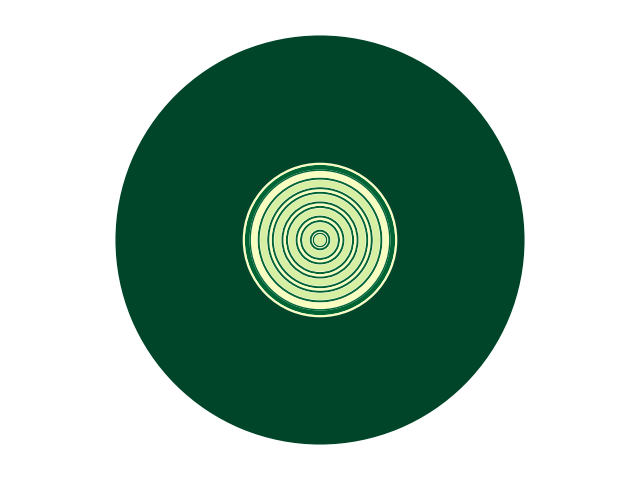Note
Go to the end to download the full example code
Hex block to RZ geometry conversion
Often, parts of a reactor model must be transformed to a different geometry in order to perform a certain type of physics calculation. For example, in some fast reactor lattice physics calculations, detailed descriptions of control assemblies must be mapped to equivalent 1-D cylindrical models.
This example shows how a control assembly defined in full hex-pin detail can be automatically converted to an equivalent 1-D RZ case, including an outer ring of fuel to drive the case.
This conversion includes rings for control material, gap, cladding (on both sides of each ring of control material), coolant, duct, and fuel. The color of the plot is proportional to the mass density.
Given this transformation, a 1-D lattice physics solver can be executed to compute accurate cross sections.
By automating these kinds of geometry conversions, ARMI allows core designers to maintain the design in real geometry while still performing appropriate approximations for efficient analysis.
Warning
This uses armi.reactor.converters.blockConverters, which
currently only works on a constrained set of hex-based geometries. For your systems,
consider these an example and starting point and build your own converters as
appropriate.
from armi import configure
from armi.reactor.converters import blockConverters
from armi.reactor.flags import Flags
from armi.reactor.tests import test_reactors
# configure ARMI
configure(permissive=True)
_o, r = test_reactors.loadTestReactor()
# fully heterogeneous
bFuel = r.core.getBlocks(Flags.FUEL)[0]
bControl = r.core.getBlocks(Flags.CONTROL)[0]
converter = blockConverters.HexComponentsToCylConverter(sourceBlock=bControl, driverFuelBlock=bFuel, numExternalRings=1)
converter.convert()
converter.plotConvertedBlock()
# partially heterogeneous
converter = blockConverters.HexComponentsToCylConverter(sourceBlock=bFuel, ductHeterogeneous=True)
converter.convert()
converter.plotConvertedBlock()
Total running time of the script: ( 0 minutes 0.543 seconds)

